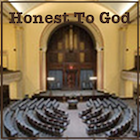 Today was a holiday in my neighborhood. Not a Jewish holiday, of course, but one I admire nonetheless: Ash Wednesday, the beginning of Lent, a 40-day period of fasting and repentance before Holy Week and Easter.
Today was a holiday in my neighborhood. Not a Jewish holiday, of course, but one I admire nonetheless: Ash Wednesday, the beginning of Lent, a 40-day period of fasting and repentance before Holy Week and Easter.
What I admire about Ash Wednesday is its AWESOME ritual: the smearing of a cross of ashes upon the foreheads of adherents. Walking around New York today, I was so moved by the sight of many Catholics (I think only a very few Protestants do this) bearing the sign of their faith. In this secular age, I admire those who walk around wearing the badge.
First, especially in New York City, one cannot fail to notice the rich ethnic diversity of the Catholic Church: many, many, many Hispanics, some blacks, a few Asians, and still plenty of what we used to call “white ethnics,” Italians, Poles, Germans and Irish. That’s just so cool and broad. That’s what Catholic means, after all: the whole world.
Even more, I admire the symbolic depth of this ritual. Symbols are those evocative mythic and poetic deeds, gestures and words that seize us, and bring us into contact with the ultimate story, what’s really real. For a Christian, I can only imagine, this is an amazingly deep gesture: inscribing your face with a mark that comprehends both your inevitable death – for “you are dust and to dust you shall return” [Genesis 3.19] – and the possibility of your eternal life, symbolized for the Christian by the cross. That’s religion, my friends: You will die; face it. You will live forever; be worthy of it.
We Jews don’t do much with ashes any more. But we should! And we used to. We do have some old practices in this vein that deserve mention. During the communal crisis of a drought, Mishna Taanit 2.1 [=15b-16a in the Talmud] records, they would bring the Torah ark into the public square and place ashes upon it, while the communal leaders would smear the ashes upon their heads. And since the Jerusalem Temple was destroyed in 70 CE, grooms were to place ashes upon their foreheads, to fulfill the verse “If I forget you, Jerusalem, let my right hand wither. Let my mouth seal shut if I do not recall Jerusalem even at my greatest happiness [Psalm 137.5-6; Talmud Bava Batra 60b].” These practices connote God’s participation in Israel’s human suffering [cf Isaiah 63 and Psalm 91], and inevitable human mortality. Hmmm. Seems like some Jewish and Christian parallel themes at work here …
At any rate, I wish my neighbors a meaningful day with a powerful symbol. And I wish us all that we may be privileged to see the fulfillment of the prophecy of Isaiah 61.3, that God will “grant joy [*pe’er*] in place of ashes [*efer*] to those who mourn for Zion.”
- Nedarim, Daf 79 - January 12, 2023
- Nedarim, Daf 78 - January 11, 2023
- Nedarim, Daf 77 - January 10, 2023
